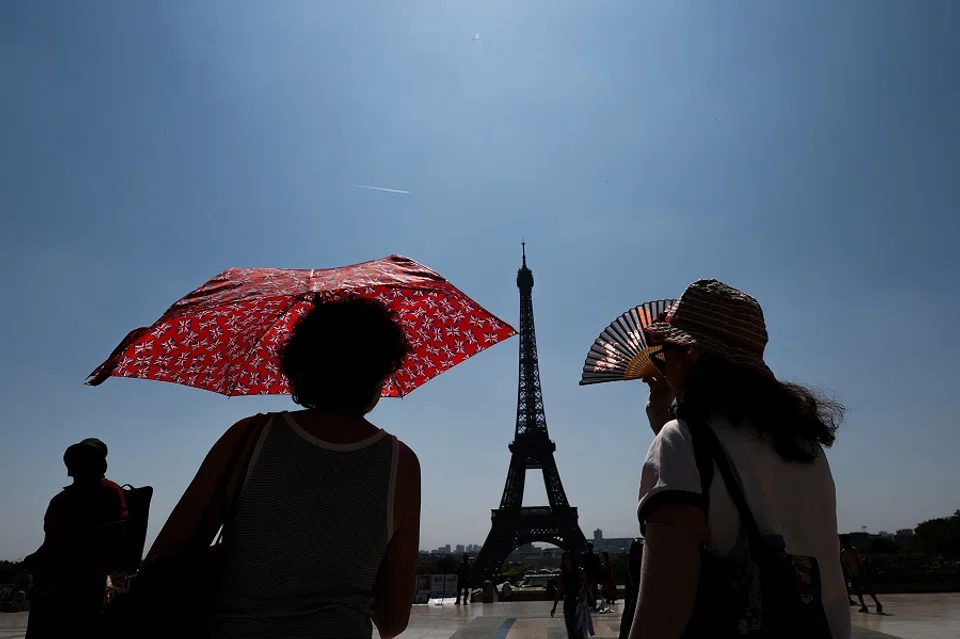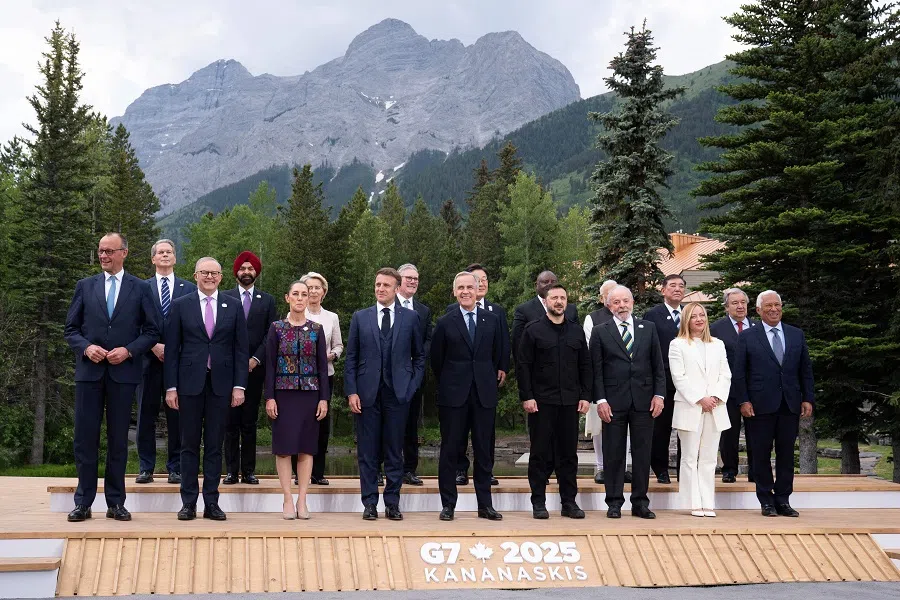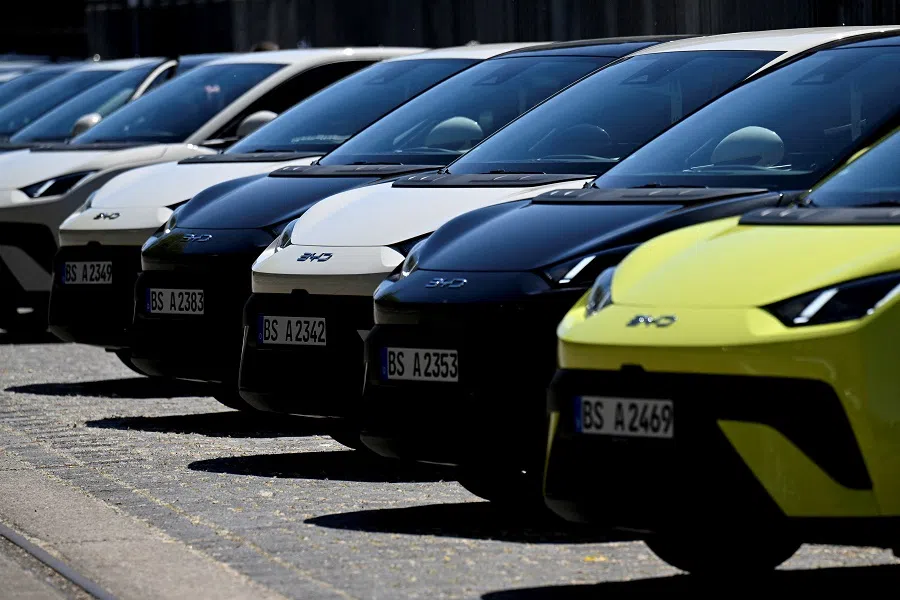The charm-shock strategy: How China courts and pressures Europe
Europe is caught in the middle of the tariffs game, with Washington calling the shots while China weaponises rare earth supplies. Even if China woos Europe and hopes to get it on its side, existing issues mean that it may be difficult to get out of the stalemate. Academic Philippe Le Corre explains.

Following Donald Trump’s return to the White House in January 2025, it seems that Chinese officials have been taking their dreams for reality. They were hoping that disillusioned European countries would quickly fall in Beijing’s arms. While the Europeans may find the US trade war and the war of words by the Trump administration insulting, as a matter of fact, the “old continent” has its own issues with China.
Beijing’s charm offensive to woo the Europeans
Soon after Trump became president, China started a charm offensive towards Europe. In February, Foreign Minister and Politburo member Wang Yi addressed European officials during the Munich Security Conference with a warm message. China, he said, was willing to cooperate with the European side to “deepen strategic communication and mutually beneficial cooperation”, and “steer the world to a bright future of peace, security, prosperity and progress”.
In a similar vein, Chinese diplomats and corporate representatives embarked on a set of travels across Europe, looking for diplomatic options and business opportunities. For example, the twin region agreement between the French region of Brittany and Shandong province, which had been frozen for years, is back on track following cross visits. So is the one between Germany’s North Rhine-Westphalia region and Sichuan province. From top down, there is an apparent attempt, from Beijing, to use the rift started with US tariffs on European products to divide and rule the transatlantic community.
... Europeans are caught in the middle of the US-China rivalry. Overall, they are net energy importers and are lagging behind the two superpowers in innovation and technology.
EU confronts China’s rare earth dominance
There is little doubt Europeans are caught in the middle of the US-China rivalry. Overall, they are net energy importers and are lagging behind the two superpowers in innovation and technology. Geopolitical uncertainties are forcing Europe to confront security challenges at an uncharacteristically rapid pace. Yet trade remains the more pressing concern for many European governments, under growing pressure to defend their industries and workers.

Car manufacturers are increasingly alarmed about rare earth restrictions imposed by Beijing, not just on US companies following US tariffs, but also on the rest of the world. China holds up to 90% of rare earth and magnets, which are used to manufacture high-tech goods.
At the recent G7, European Commission President Ursula von der Leyen delivered stern comments on China, a country that is “using a quasi-monopoly not only as a bargaining chip, but also weaponising it to undermine competitors in key industries”. A view obviously shared by the Trump administration.
During US-China trade talks in London, Beijing negotiators made abundantly clear that rare earth and magnets were indeed now part of the transaction. This is enticing massive supply risks for car manufacturers, smart phones, IT companies, airplanes, military equipment and other industries around the world. Beijing is perpetuating a “pattern of dominance, dependency and blackmail” vis-à-vis its trading partners, von der Leyen added in her recent G7 statement.
The rare earth crisis adds another complication to an already tense EU-China trade relationship. Since 2019, the EU has considered the Chinese market as fairly restricted.
The rare earth crisis adds another complication to an already tense EU-China trade relationship. Since 2019, the EU has considered the Chinese market as fairly restricted. Lack of reciprocity in access to the Chinese market and the absence of a level playing field for EU investors in China have also posed major challenges for EU-China investment relations in recent years, with Brussels calling China, in its 2019 EU-China Outlook, “a partner, a competitor and a systemic rival”. The systematic rivalry almost seems to have taken centre stage these days.
The new ‘China shock’
Bilateral trade last year reached 730 billion euros, with a deficit of 305 billion euros in China’s favour. Europe is caught in the middle of the tariffs game, with Washington calling the shots while China weaponises rare earth supplies. With support from fellow G7 attending leaders of the top three European economies, Germany, France and Italy, von der Leyen acknowledged that “the sources of the biggest collective problem we have has its origins in the accession of China to the WTO in 2001”.
The new “China shock” is an increased flood of goods toward global markets with subsidised overcapacity that its own market cannot absorb,” she added. Such strong wording is the latest in an increasing shift in EU-China relations.

Since 2016, tensions have appeared quite openly. They started with the surprise 2016 purchase of a top German robotics company, Kuka, by Midea, a Chinese company, sending shockwaves among German IT businesses; tensions continued with Chinese sanctions against European companies dealing with Lithuania after the latter allowed Taiwan to open a trade office in 2021, and also with tariffs imposed by Brussels on heavily-subsidised Chinese-built electric vehicles (EVs), which have been flooding the EU market. Last April, the EC increased its tariffs from 38% to 45% against exporters of EV manufacturers, including BYD, Geely and SAIC. And it imposed a 62.4% anti-dumping duty on Chinese shipments of hard plywood.
Brussels has also introduced a standard 2 euro flat tax on “small parcels” — 91% of which originate from China, including goods from platforms like Temu and Shein — generating an estimated 4.17 billion euro in 2024, according to the European Commission. While cheap Chinese products continue to flood European markets, the Commission — whose founding mission was rooted in trade — has taken a firmer stance. In her March 2023 speech, von der Leyen outlined a new “de-risking” strategy for the EU’s relationship with China. Meanwhile, the EU-China Comprehensive Agreement on Investment — a deal seven years in the making but frozen since 2021 — now appears to have little hope of revival.
Europe’s China challenge: a house divided?
A long-awaited EU-China summit is set for 24 July in Beijing, between Xi Jinping, Ursula von der Leyen and Carlos Costa (president of the European Council, representing heads of state). In the run-up to this, the European Commission has entered tough negotiations with China on a range of economic issues, starting with Chinese EVs, where a minimum price is under discussion, and extending to retaliatory Chinese sanctions on European liquor producers.

The EU-China Strategic Dialogue is also scheduled to take place beforehand in Brussels on 2 July in the presence of Wang Yi and the EU’s High Representative for Foreign Affairs and Security Policy Kaja Kallas, but progress on the economic front has been limited, and could jeopardise the leaders’ summit.
... most Europeans seem to share grievances with regard to China, but, as always with the EU, there are countries willing to play it alone.
Overall, most Europeans seem to share grievances with regard to China, but, as always with the EU, there are countries willing to play it alone. Spain’s Prime Minister, Pedro Sanchez, travelled to Beijing to promote Spanish meat, while Hungary’s Viktor Orbán would never criticise China on either trade or cooperation with Russia. Hungary is the prime recipient of Chinese FDI, including some related to Beijing’s Belt and Road Initiative.
With another major geopolitical crisis developing in the Middle East, it would be tempting for the EU to strengthen links with like-minded countries, including the US, Japan and Canada, but the Trump administration has been anything but easy to deal with. All this leads to an even more coordinated EU approach and an increase in common instruments, joint capabilities and effective policies. At least von der Leyen is now prepared to tell China it cannot do whatever it wants in Europe... or with Europe.





![[Big read] When the Arctic opens, what happens to Singapore?](https://cassette.sphdigital.com.sg/image/thinkchina/da65edebca34645c711c55e83e9877109b3c53847ebb1305573974651df1d13a)